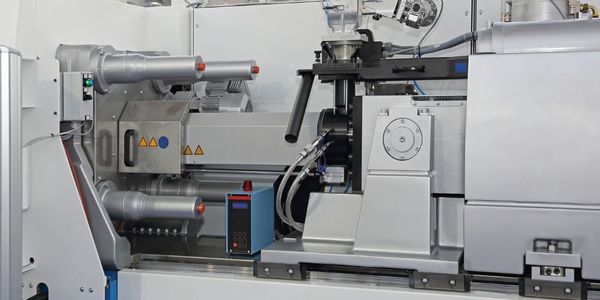公司规模
Mid-size Company
地区
- Europe
国家
- United Kingdom
产品
- VectorFurniture®
- Brio®
技术栈
- Automated Pattern Making
- Automated Marker Making
- Automated Spreader
实施规模
- Enterprise-wide Deployment
影响指标
- Environmental Impact Reduction
- Productivity Improvements
- Customer Satisfaction
技术
- 自动化与控制 - 自动化与过程控制系统
- 功能应用 - 制造执行系统 (MES)
- 功能应用 - 产品生命周期管理系统 (PLM)
适用功能
- 质量保证
用例
- 自动化制造系统
- 过程控制与优化
- 预测性维护
服务
- 系统集成
- 软件设计与工程服务
关于客户
Formed in 1947, Godfrey Syrett has been working in partnership with its clients for almost 70 years now — providing high quality, well designed and stylish furniture solutions throughout the United Kingdom and Europe. Satisfying their customers is about more than just making furniture though. It’s also about providing a complete and hassle-free service that takes the weight off their shoulders. That’s why Godfrey Syrett offers a professional, end-to-end solution that utilizes the full range of services it provides. The company is known for its design-led approach to manufacturing hospital, university, and office furniture, and aims to continue delivering functional, on-trend furniture while increasing speed to market and reducing operational costs.
挑战
The contract market has changed immensely since Godfrey Syrett’s founding in 1947. Over the years, the popularity of steel frame, straight-lined furniture in public spaces has given way to softer, more innovative and complex designs. Office furniture must be flexible in order to adapt to the nomadic nature of contemporary work environments. A rising number of companies are also ordering furniture equipped with charging docks and power sockets for reception areas. Customers are becoming more demanding not just in terms of style and function but also of delivery times. “Three or four years ago, we would have had six to eight weeks to deliver furniture to the customer. That has now been reduced to three or four. We even have products where we have to deliver within seven working days on receipt of an order,” explains Michael Donachie, Operations Director. The company’s manual manufacturing process was no longer suitable to its design, manufacturing and growth ambitions, creating capacity and quality issues. In addition to continuing to produce practical yet innovative furniture solutions, Godfrey Syrett aspires to expand its market share in the private and student accommodations sectors. Growth in these sectors will help the company reach its target of becoming a £40 million business within the next five years.
解决方案
Lectra approached the Godfrey Syrett team to determine how it could help them on their transformation journey. “Lectra took the time to fully understand our needs right from the outset of the relationship. Whereas we were primarily focused on improving capacity, Lectra demonstrated that they could help us improve capacity, efficiency, quality and bring product to the marketplace with a much quicker process,” says Michael. Godfrey Syrett’s visit to Lectra’s Bordeaux campus, which coincided with Lectra’s annual furniture seminar, presented the double opportunity to gain an overall vision of Lectra’s furniture offer and perform benchmarking tests to see how Lectra’s technology and expertise could benefit Godfrey Syrett specifically. “After our visit, it became very apparent, very quickly that this would be a partnership, not just a supply chain. That we could tap into Lectra’s experience and innovation to improve our business,” continues Michael. With their new, digitized process—which, in addition to a VectorFurniture® fabric cutter, includes Brio®, Lectra’s automated spreader, as well as its automated pattern making and marker making solutions—Godfrey Syrett has improved manufacturing capacity by 70% compared to manual cutting. “Lectra helps us meet the strict deadlines. We used to have a team of upholsterers who cut the fabric manually, the wastage would be greater, and the time needed to cut the fabric to size would be five to ten times as long as it is now with the Lectra machine,” says David Hall, Group Sales and Marketing Director.
运营影响
数量效益

Case Study missing?
Start adding your own!
Register with your work email and create a new case study profile for your business.
相关案例.

Case Study
Remote Monitoring & Predictive Maintenance App for a Solar Energy System
The maintenance & tracking of various modules was an overhead for the customer due to the huge labor costs involved. Being an advanced solar solutions provider, they wanted to ensure early detection of issues and provide the best-in-class customer experience. Hence they wanted to automate the whole process.

Case Study
Predictive Maintenance for Industrial Chillers
For global leaders in the industrial chiller manufacturing, reliability of the entire production process is of the utmost importance. Chillers are refrigeration systems that produce ice water to provide cooling for a process or industrial application. One of those leaders sought a way to respond to asset performance issues, even before they occur. The intelligence to guarantee maximum reliability of cooling devices is embedded (pre-alarming). A pre-alarming phase means that the cooling device still works, but symptoms may appear, telling manufacturers that a failure is likely to occur in the near future. Chillers who are not internet connected at that moment, provide little insight in this pre-alarming phase.

Case Study
System 800xA at Indian Cement Plants
Chettinad Cement recognized that further efficiencies could be achieved in its cement manufacturing process. It looked to investing in comprehensive operational and control technologies to manage and derive productivity and energy efficiency gains from the assets on Line 2, their second plant in India.

Case Study
Plastic Spoons Case study: Injection Moulding
In order to meet customer expectations by supplying a wide variety of packaging units, from 36 to 1000 spoons per package, a new production and packaging line needed to be built. DeSter wanted to achieve higher production capacity, lower cycle time and a high degree of operator friendliness with this new production line.

Case Study
Airbus Soars with Wearable Technology
Building an Airbus aircraft involves complex manufacturing processes consisting of thousands of moving parts. Speed and accuracy are critical to business and competitive advantage. Improvements in both would have high impact on Airbus’ bottom line. Airbus wanted to help operators reduce the complexity of assembling cabin seats and decrease the time required to complete this task.




